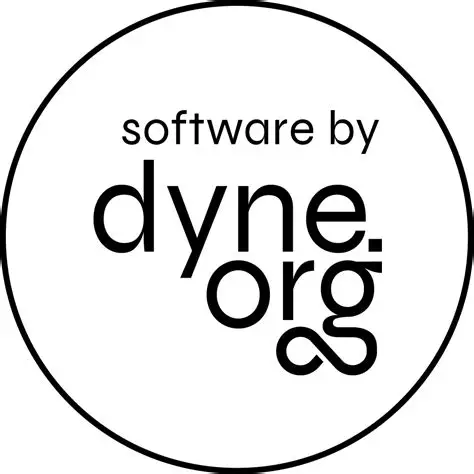https://github.com/interfacerproject/zenflows
Resource-Event-Agent Graph Database governed by Valueflows vocabulary logics
https://github.com/interfacerproject/zenflows
Last synced: 5 months ago
JSON representation
Resource-Event-Agent Graph Database governed by Valueflows vocabulary logics
- Host: GitHub
- URL: https://github.com/interfacerproject/zenflows
- Owner: interfacerproject
- Created: 2021-11-22T11:51:37.000Z (over 3 years ago)
- Default Branch: master
- Last Pushed: 2023-05-26T11:22:10.000Z (almost 2 years ago)
- Last Synced: 2024-08-08T18:22:06.059Z (9 months ago)
- Language: Elixir
- Homepage: https://interfacerproject.eu
- Size: 6.1 MB
- Stars: 12
- Watchers: 9
- Forks: 3
- Open Issues: 10
-
Metadata Files:
- Readme: README.md
- Contributing: CONTRIBUTING.md
- License: LICENSES/AGPL-3.0-or-later.txt
Awesome Lists containing this project
- awesome-starred - interfacerproject/zenflows - Resource-Event-Agent Graph Database governed by Valueflows vocabulary logics (others)
README
# Zenflows - Valueflows REA GraphDB

Zenflows is a tool to leverage commons-based peer production by
documenting and monitoring the life cycle of products. The goal is
that of enabling a federated network of organizations to bundle,
systematize and share data, information and knowledge about physical
artifacts.
[](http://www.dyne.org)
## Features
- Most validations are provable (and sealed by means of cryptography) using [Zenroom](https://zenroom.org) as core crypto component, including support for advanced Digital Product Passport schemes like
[REFLOW Portable Crypto Functions](https://medium.com/think-do-tank/reflow-crypto-material-passports-for-the-circular-economy-d75b3aa63678).
- The [Valueflows](https://valueflo.ws) vocabulary is adopted to govern a [Resource Event Agent](https://en.wikipedia.org/wiki/Resources,_Events,_Agents) accounting model and facilitate the development and execution of business logics built on top of it.
- The [PosgreSQL](https://postgresql.org) database backend is used as battle-tested data-storage solution well compatible with established enterprise standards in system administration, on top of it a GraphQL interface is developed based on the well performant [Elixir](https://elixir-lang.org) language framework.
Zenflows is a software component of the [INTERFACER project](https://www.interfacerproject.eu).
🎮 Quick start
•
💾 Install
•
🔧 Configuration
•
📋 Testing
•
📘 Styleguide
•
🐛 Troubleshooting & debugging
•
😍 Acknowledgements
•
🌐 Links
•
👤 Contributing
•
💼 License
🚩 Table of Contents (click to expand)
* [Quick start](#-quick-start)
* [Install](#-install)
* [Configuration](#-configuration)
* [Testing](#-testing)
* [Styleguide](#-styleguide)
* [Troubleshooting & debugging](#-troubleshooting--debugging)
* [Acknowledgements](#-acknowledgements)
* [Links](#-links)
* [Contributing](#-contributing)
* [License](#-license)
## 🎮 Quick start
To start using Zenflows with native-to-host Elixir, PostgreSQL, and Restroom instances:
1. Run `./mann env.setup` to generate the configuration file, `conf/env.sh`.
2. Edit `conf/env.sh` to suit your needs. Read the [Configuration Guide](docs/configuration-guide.md) for more info.
3. Run `./mann dep.setup` to install dependencies.
5. Run `./mann serve` to start the application.
6. Head over to [`localhost:4000/play`](http://localhost:4000/play) for the GraphiQL playground.
7. Use the URL `http://localhost:4000/api` in case if you'd like to use your own GraphQL client.
To start using Zenflows with docker(-compose):
1. Run `./mann devop.serve` to generate the docker-compose file (automatically filled) and start the application.
If you want to edit the generated docker-copmose file:
1. Run `./mann devop.setup` to generate the docker-copmose file, `devop/docker-compose.yml`.
2. Edit `devop/docker-compose.yml` to suit your needs. Read the [Configuration Guide](docs/configuration-guide.md) for more info.
3. Run `./mann devop.serve` to start the application.
**[🔝 back to top](#toc)**
***
## 💾 Install
🚧 TODO
**[🔝 back to top](#toc)**
***
## 🔧 Configuration
🚧 TODO
**[🔝 back to top](#toc)**
***
## 📋 Testing
🚧 TODO
**[🔝 back to top](#toc)**
***
## 📘 Styleguide
* Use tabs for indentation, spaces for aligment.
* Don't indent the top-level code in modules.
* Use trailing commas in multi-line lists, maps, functions, etc. where
possible.
**[🔝 back to top](#toc)**
***
## 🐛 Troubleshooting & debugging
🚧 TODO
**[🔝 back to top](#toc)**
***
## 😍 Acknowledgements
[](http://www.dyne.org)
Copyleft (ɔ) 2021-2023 by [Dyne.org](https://www.dyne.org) foundation, Amsterdam
Designed, written and maintained by [srfsh](https://github.com/srfsh) with the help of [jaromil](https://github.com/jaromil), [puria](https://github.com/puria).
Reviews and suggestions contributed by [Lynn](https://github.com/fosterlynn), [Bob](https://github.com/bhaugen), and members of the Valueflows community.

This project is receiving funding from the European Regional Development Fund (ERDF).
**[🔝 back to top](#toc)**
***
## 🌐 Links
https://interfacerproject.eu
https://dyne.org/
https://reflowproject.eu
https://www.valueflo.ws/
**[🔝 back to top](#toc)**
***
## 👤 Contributing
Please first take a look at the
[Dyne.org - Contributor License Agreement](CONTRIBUTING.md) then
1. 🔀 [FORK IT](../../fork)
2. Create your feature branch `git checkout -b feat/branch`
3. Commit your changes `git commit -am 'Add some fooBar'`
4. Push to the branch `git push origin feature/branch`
5. Create a new Pull Request `gh pr create -f`
6. 🙏 Thank you
**[🔝 back to top](#toc)**
***
## 💼 License
Zenflows - Valueflows vocabulary
Copyright (c) 2021-2023 Dyne.org foundation, Amsterdam
This program is free software: you can redistribute it and/or modify
it under the terms of the GNU Affero General Public License as
published by the Free Software Foundation, either version 3 of the
License, or (at your option) any later version.
This program is distributed in the hope that it will be useful,
but WITHOUT ANY WARRANTY; without even the implied warranty of
MERCHANTABILITY or FITNESS FOR A PARTICULAR PURPOSE. See the
GNU Affero General Public License for more details.
You should have received a copy of the GNU Affero General Public License
along with this program. If not, see .
**[🔝 back to top](#toc)**